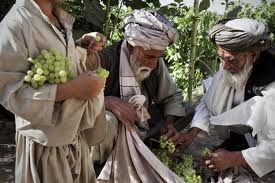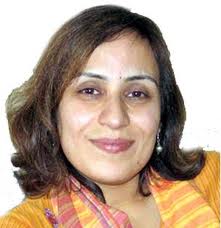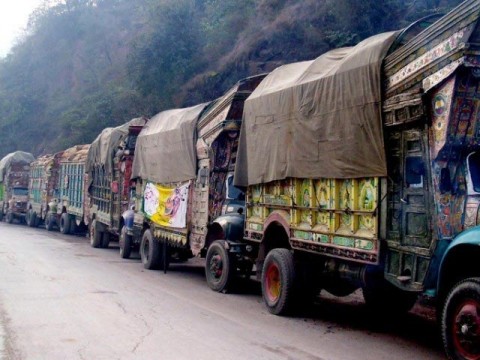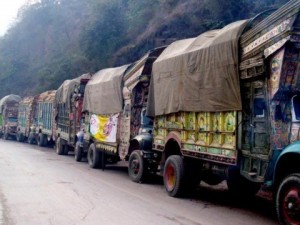
“On the one hand they are killing innocent women, children and old people in drone attacks and on the other, they are spending millions on vaccination campaign,” said a leaflet distributed in the region’s main town of Miramshah.
Following the ban in North Waziristan, similar pamphlets were distributed by a militant faction in the adjoining South Waziristan a week later, warning health workers to stop their campaigns or face the consequences.
“Polio and other foreign-funded vaccination drives in Wana sub-division would not be allowed until US drone operations in the agency are stopped,” stated the pamphlet issued by Taliban commander Mullah Nazir. This is the third time the Taliban have banned polio vaccinations in areas under their control.
Since the Nato conference in Chicago this May, and when Pakistan decided not to re-open its supply route to Afghanistan, drone strikes have intensified and the brunt of attacks has been felt in both the North and South Waziristan agencies.
If the Taliban mean business there could be “an increase in polio cases, and even disability and death among the children of these areas” according to Dr Janbaz Afridi, deputy director of the Expanded Programme for Immunization (EPI) for Khyber Pakhtunkhwa.
“For us, even one child left out is one too many,” says Mazhar Nisar, the Health Education Advisor at the Prime Minister’s Polio Monitoring Cell, referring to the children missed from being administered the oral polio vaccine (OPV) caused by the ban.
These announcements by Taliban are indeed a blow to eradication of polio in Pakistan. Despite two decades of mass vaccination drives, Pakistan has failed to control the crippling paediatric disease. Today, being among the last three countries (others being Afghanistan and Nigeria) where polio is endemic, it is under excessive international pressure to eradicate it as the presence of the virus means a major set-back to global plans.
The last decade saw Pakistan taking massive strides to reduce the polio incidence. In 2005, the number of cases went down to just 28, but since then there have been signs of the OPV drive losing momentum.
Since 1988, the Global Polio Eradication Initiative – spearheaded by WHO, Rotary International, the US Centres for Disease Control and Prevention and Unicef – has achieved a 99 per cent reduction in polio incidence worldwide.
This was possible through the mass administration of OPV simultaneously to all children below the age of five, to induce ‘herd immunity’ in entire regions and replace the wild polio virus with a cultured, attenuated strain.
Since early this year, there have been 22 confirmed polio cases, compared to 52 in the same period last year. Of these, 11 have been reported from Fata, with nine alone from Khyber agency.
Political analyst Hasan Askari Rizvi views the Taliban policy of linking the entry of health workers to stopping drone attacks as show of “confidence and control of the area”.
“That they can implement anything if they become determined and the Pakistani authorities are left with no option but to negotiate with them shows the Taliban disregard for the future of children and this fits in well with their policy of destroying schools. The desire to establish their control and create their domain of authority by whatever means is the objective. They represent an authority alternate to Pakistani authority,” Askari told Dawn.com.
Afridi of the EPI agrees. He says the fear of “torture and kidnapping” from the militant groups is quite palpable and spread across the adjoining agencies as well as parts of Khyber Pakhtunkhwa province.
“There is every effort to assuage these fears and the field teams will be provided complete security by the police, with support from the provincial administration.” So far, he said, there have been no cases of health workers pulling out of the immunisation work due to the threats issued by the local militants.
Meanwhile, Nisar, is quite hopeful that the situation will be resolved. “The federal government is aware of the situation and the government of KPK, the political agents, members of the peace committee and tribal elders are intervening to find a solution,” he told Dawn.com, adding: “After all, they are putting their kids at risk too.”
“I think it’s a step in the right direction,” says Afridi.
Mariam Bibi, who heads Khwendo Kor – a KP-based non-government organisation working for women of the area, too concedes persuasion the only way out. “Nobody wants to endanger the lives of their children, but this message needs to be emphasised.”
However, she warns it should not be limited to getting the militants to agree on administration of the polio vaccine.
“Today it is polio, tomorrow the militants will come up with another issue to arm-twist the government; a more holistic approach is needed where the confidence of the local people has to be won.
“You give them water and I swear half your problem will be resolved,” Bibi said.
She said there were “layers upon layers” of problems that needed to be addressed. “Give them a complete healthcare package, not just polio drops; when you promise education, ensure and negotiate that it is not just for boys but be firm that girls will have to be educated as well.” According to Bibi, the government needed to strategise and build its capacity.
“And they need more women in the field.”
The latest announcement by the militants has once again revived the case of Dr Shakil Afridi, a local doctor convicted by a tribal court to 33 years in prison for assisting American spy agence CIA in finding the whereabouts of Osama Bin Laden through a fake hepatitis campaign.
Bibi said after Dr Afridi was found to be spying, there is a growing suspicion among the locals that there could be several others among the health workers spying for the US This suspicion is compounded by the statement made by Bahadur who alluded to the “strong possibility of spying” on mujahideen for the US during the polio vaccination campaign. “In the garb of these vaccination campaigns, the US and its allies are running their spying networks in Fata…” the leaflets distributed in South Waziristan says.
With anti-American sentiment at an all time low, this has further hampered the vaccination driver.
However, Mazhar is quite convinced the Pakhtun people “would never use children” as a ploy. Moreover, the health workers were all local people and “well aware of the situation on the ground” in these security compromised areas.
“Taliban use such tactics like burning girls schools to gain world’s attention,” agreed Ibrash Pasha, working for Khwendo Kor in Dir.
Therefore, there are never any fixed dates set for holding vaccination drives and “opportunistic campaigns” take place whenever the situation becomes favourable. For now, the only other step taken by the polio cell is to immunise anyone entering or leaving these tribal agencies and the province. “Vaccinators are present at all entry and exit points,” said Mazhar.

















